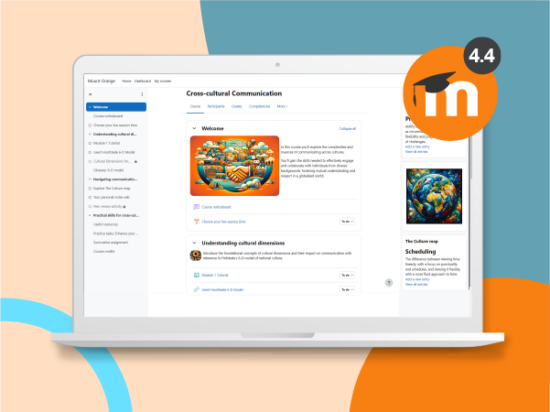In 2017, Moodle has been involved with Google Summer of Code (GSoC) for over 11 years!
Since then we have worked with numerous students interested in the open source project, in Moodle, and in development.
You can view all of the projects of our students since 2006 in our community site.
As an organisation that values the importance of education, innovation and openness, we are proud to be involved in the mentoring of students for the last 11 years.
Now what happens to our students after they complete their GSoC project with us? What do they do next?
We caught up with Mihir Thakkar, one of our GSoC students to find out how Moodle changed his life.
Moodle HQ: Mihir, thanks for taking the time to chat to us! Can you start with how you first got involved with Moodle?
Mihir: My first introduction with Moodle happened in my first year of undergrad at Nirma University, India. We actively used Moodle for assignment submissions and online quizzes. When I got to know that Moodle is participating in Google Summer of Code, it was my first choice as I love their product. I got involved with Moodle as an open source developer by fixing an easy bug from the tracker. Thanks to Marina Glancy who helped me get started.
Moodle HQ: Can you briefly outline what your Google Summer of Code project with Moodle was about?
Mihir: Existing enrol_meta plugin provides functionality to automatically synchronize enrolments between two courses. However, the user interface is inconvenient due to problems which include the inability to bulk select and/or search courses, lacking the functionality to synchronize suspended/expired enrolments. As part of my GSoC project, I developed an improved version of the meta plugin called enrol_metabulk in which one instance of the plugin allows linking multiple courses with a convenient and user-friendly interface and improved synchronization for enrolments as well as un-enrolments.
Moodle HQ: What did you get out working with Moodle for the Google Summer of Code program that would help you shape your career or interest in development or open source?
Mihir: Working with Moodle for GSoC was my first experience with a large scale or a real-world project. I got amazing opportunities to work on problems which were new for me as a student, for example, detailed planning & designing before development, handling large inputs for scalability, automated testing (Behat) and most importantly interaction with smart and intelligent developers around the world.
The best part about GSoC was working with my mentor, Marina Glancy. I learned about many new technologies and concepts, good software development practices and the spirit of open-source. I cannot thank her enough for being so supportive and helpful throughout the project.
Also, you would be glad to know that during last few years, I received many emails from various universities saying that they use my plugin and they like it. This motivates me to contribute more code to open source and help the world.
Moodle HQ: How do you think Moodle has empowered you as a learner and how do you think Moodle will play a part in the next stage of your career?
Mihir: I interacted with Moodle not only as a student but also a developer. My experience with GSoC taught me many skills which continues to help me even after completion of the project.
Companies are really interested in students who worked on open source projects. In all my job interviews, this project pops up as a topic of discussion. Personally, this really helped me get a full-time job offer from the MathWorks HQ (Boston, USA).
I plan to contribute further to the open source community in future. Thanks to Moodle for giving me an opportunity!
Thanks Mihir for taking the time to talk to us today.
This yeat Moodle has once again been selected to participate in the Google Summer of Code program.
Find out how you can get involved in and see our suggested GSOC projects.



